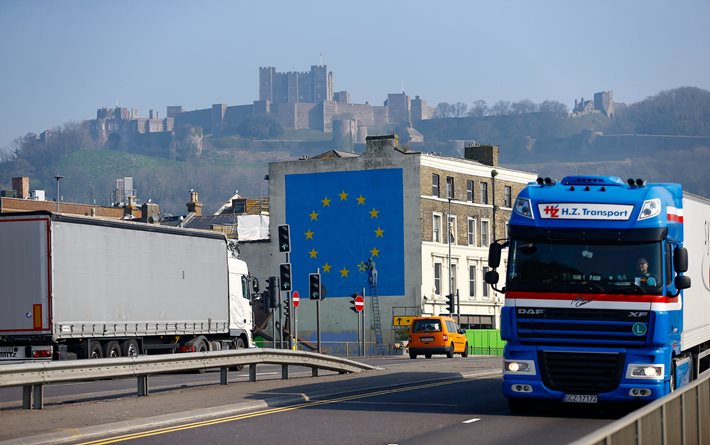The time has come for government to put the politics of Brexit to one side, come clean with industry, and share its full impact assessment for a No Deal departure from the EU, according to FTA, the organisation which speaks for the logistics sector. After this weekend’s leak of the government’s own Operation Yellowhammer report into the potential impact of the UK leaving the EU without a deal, FTA’s James Hookham is in no doubt that the government needs to start rebuilding trust with the logistics sector by sharing its full contingency plans:
“Some of the scenarios leaked in the Operation Yellowhammer report came as a surprise to the industry, despite FTA’s constant conversations with government since Article 50 was triggered: the areas of concern which have never been mentioned yet would have a significant impact on the way the country conducts business.
“This is not about the politics of Brexit – for the past three years, FTA has been pressing government for clarity on the trading environment we will be working in once the UK leaves the EU, with only limited success. Following the revelations in the media at the weekend, it is disheartening to discover that the government has been concealing the facts which business needs in order to keep Britain trading effectively.
“The news that fuel supplies could be impacted is particularly worrying, considering this would affect the movement of goods both domestically and internationally – as an industry, we remember the impact of the 2000 fuel strike very well, and the chaos which it caused, both for business and for individuals.
“FTA has written to Michael Gove today (19 August 2019), urging him to come clean over the detail contained within the Operation Yellowhammer report so that logistics businesses can complete effective preparations to protect the UK’s supply chain from the worst impacts of a No Deal Brexit. FTA is still waiting for answers from government to the most critical questions which directly affect the way the sector operates, now and in the future. As an industry, we are resilient and flexible, but can only work with the information we are given. To assume that logistics businesses will be able to make sweeping changes to working practices with less than 80 days left before the UK’s scheduled departure from the EU is unrealistic at best, and not what we have been led to believe will be needed by government.”
As Mr Hookham concludes, time is now running out to protect the UK’s supply chain, both at home and overseas, which could have dire consequences for the economy:
“As an industry, logistics will support any move which clarifies what we should be planning for from 31 October onwards. We can plan for the worst and hope for the best, but without knowing what the worst might look like, with less than three months left, it is impossible to make strides towards a resolution which will keep Britain trading effectively come what may after Brexit. We simply do not have the time now to be pawns in a political game – logistics operators are the lifeblood of the British economy and deserve some honesty and trust from government to ensure that goods and services can continue to move effectively.”












